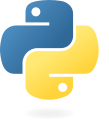Wikidata:Scholia/it
| Home |  |
| Instructions |  |
| Administration |  |
| Talk |  |
| Use Scholia! |  |


About
Scholia (Q45340488) ![]() è un progetto per presentare informazioni bibliografiche e profili accademici di autori e istituzioni usando Wikidata, il database curato dalla comunità che supporta Wikipedia e tutti gli altri progetti Wikimedia. Scholia è stato sviluppato nel quadro della più ampia iniziativa WikiCite, che cerca di indicizzare bibliographic metadata in Wikidata sulle risorse che possono essere utilizzate per convalidare le affermazioni fatte su Wikidata, Wikipedia o altrove.
è un progetto per presentare informazioni bibliografiche e profili accademici di autori e istituzioni usando Wikidata, il database curato dalla comunità che supporta Wikipedia e tutti gli altri progetti Wikimedia. Scholia è stato sviluppato nel quadro della più ampia iniziativa WikiCite, che cerca di indicizzare bibliographic metadata in Wikidata sulle risorse che possono essere utilizzate per convalidare le affermazioni fatte su Wikidata, Wikipedia o altrove.
Utilizzando Scholia
Strumento principale

Accedi allo strumento Scholia su http://scholia.toolforge.org/. La barra dei menu elenca "autore", "lavoro", "organizzazione", "argomento" e altre opzioni di visualizzazione dei dati suggerite. Chiunque desideri vedere un profilo accademico di un ricercatore basato sulle informazioni di Wikidata sulle proprie pubblicazioni può cercare il proprio nome nella presentazione "autore". Per un profilo Wikidata di una pubblicazione, cerca "lavoro" e così via per le altre.
Creazione di un profilo accademico
Quando Wikidata ha una voce di elemento per una persona e voci di elemento per almeno alcune delle loro pubblicazioni, Scholia utilizzerà tali informazioni per generare un profilo accademico. Chiunque desideri creare un profilo accademico con Scholia dovrebbe modificare l'elemento Wikidata per quella persona nel solito modo di interagire con Wikidata. Oltre a modificare l'elemento per gli individui, si dovrebbe fornire a Wikidata un elenco delle pubblicazioni di quella persona con i dati strutturati appropriati che indicano che sono un autore di queste pubblicazioni.
Contribuire ai dati bibliografici
Wikidata sta cercando metadati strutturati per pubblicazioni accademiche. Il progetto attraverso il quale la comunità Wikimedia gestisce i problemi sociali, tecnici, di accesso ai dati e di implementazione dei dati per le citazioni è WikiCite. Mentre esperimenti di dati più piccoli dell'ordine di forse centinaia di pubblicazioni sono appropriati per il caricamento di chiunque, chiunque sia impegnato nel caricamento di citazioni su larga scala dovrebbe unirsi alla comunità Wikicite per rivedere le migliaia di pagine di documentazione e contenuti che descrivono la complicata relazione tra Wikipedia, Wikidata e citazioni a tutto ciò che è mai stato pubblicato.
To contribute enough data to create scholarly profiles for a few individuals, then collect the digital object identifier (Q25670)s for their publications and upload them to Wikidata using any of the tools which format citations for Wikidata. WikiProject Source MetaData presents tools including fatameh and Source MetaData.
Other visualizations
Scholia offers visualizations for publications, organizations, and other entities. The model for preparing visualizations for any of these is the same as for an individual researcher: first set up a Wikidata item for the entity to profile, then upload citations to publications which have structured data noting the relationship of the publication to the entity to profile. For instance, items about publications that have a main subject (P921) statement will appear in the "topic" visualization (example: Zika virus).
Use as a reference manager
Scholia integrates with BibTeX (Q8029), i.e. from inside TeX (Q5301) or LaTeX (Q5310) documents, a particular reference can be cited by just using their Wikidata identifier, through which Scholia can retrieve the bibliographic metadata that BibTeX can process to format the output according to the style file defined in the document.
Why it matters

Scholia provides a visualization and access to data which many researchers find useful and which otherwise would either be expensive, labor intensive, or use commercial closed data to access.
How it works
Scholia uses various other Wikidata functions to operate. To make a profile, it executes a set of queries using the Wikidata SPARQL query service. For some of its visualizations, it uses other tools.
Usage on Wikimedia sites
While Scholia uses data from Wikidata, it can itself be used across Wikimedia projects, e.g. by way of a template pointing from a Wikipedia or Wikimedia Commons page to a corresponding Scholia profile. A subset of such usage is tracked here.
History
Finn Årup Nielsen created the tool and encourages the Wikimedia community to engage with it.
Galleries
Scholia's dependencies
-
MediaWiki
-
Wikibase
-
Wikidata data model
-
Wikidata data formats
-
Wikidata and its SPARQL endpoint
-
Wikidata Query Service servers
-
WikiCite
-
Python (Flask)
-
JavaScript
Scholia profiles
-
Topic
-
Author
-
Article
-
Journal
-
Event
Curation pages
Several of Scholia's aspects have associated pages that help curate gaps related to the profile in question. They can usually be accessed by adding /curation to the profile's URL.
-
Topic
-
Author
-
Journal
-
Award
Comparisons
Some of Scholia's aspects allow to compare several entities. They can usually be accessed by changing the aspect in the URL from singular to plural and adding the Wikidata identifiers after the slash, separated by commas. The current setup supports comparisons of up to about 5 entities.
-
Topics
WikiCite tool chain
-
Author Disambiguator
-
SourceMD
- See also Wikidata:SourceMD/instructions
Publications
- Sengul-Jones, Monica (10 February 2021). "The promise of Wikidata". DataJournalism.com. European Journalism Centre.
- Boessen, Manuel (2019). "Maastrichtse hoogleraren". www.kec-um.nl. Maastricht University.
- Willighagen, Egon (26 October 2019). "Cheminformatics to improve Wikidata on chemical compounds". media.ccc.de/. WikiDataCon 2019.
- Open Publishing Awards (2019). "2019 CATEGORY: OPEN CONTENT Wikidata". openpublishingawards.org/. Coko Foundation.
- Egon Willighagen; Nina Jeliazkova; Rajarshi Guha (8 July 2019). "Journal of Cheminformatics, ORCID, and GitHub". Journal of Cheminformatics. 11 (1): 44. doi:10.1186/S13321-019-0365-4. ISSN 1758-2946. PMC 6613236. PMID 31281945. Wikidata Q65157566.

- Mietchen, Daniel; Rasberry, Lane (6 June 2019). "Robustifying Scholia - Developing a Wikipedia interface for exploring the research ecosystem". Data Science Institute blog.
- Lane Rasberry; Egon Willighagen; Finn Årup Nielsen; Daniel Mietchen (2 May 2019). "Robustifying Scholia: paving the way for knowledge discovery and research assessment through Wikidata". Research Ideas and Outcomes. 5. doi:10.3897/RIO.5.E35820. ISSN 2367-7163. Wikidata Q63433973.

- Stacy Allison-Cassin; Alison Armstrong; Phoebe Ayers; et al. (18 April 2019), ARL White Paper on Wikidata: Opportunities and Recommendations (PDF), Washington, D.C.: Association of Research Libraries, Wikidata Q63214058

- Finn Årup Nielsen; Daniel Mietchen; Egon Willighagen (13 March 2017). "Scholia and scientometrics with Wikidata" (PDF). Joint Proceedings of the 1st International Workshop on Scientometrics and 1st International Workshop on Enabling Decentralised Scholarly Communication. CEUR Workshop Proceedings. 1878. arXiv:1703.04222. doi:10.5281/ZENODO.1036595. Wikidata Q28942417.

- Finn Årup Nielsen; Daniel Mietchen; Egon Willighagen (October 2017). "Scholia, Scientometrics and Wikidata" (PDF). The Semantic Web: ESWC 2017 Satellite Events. Lecture Notes in Computer Science: 237–259. doi:10.1007/978-3-319-70407-4_36. Wikidata Q41799194.

- Mairelys Lemus-Rojas; Jere Odell (16 February 2018), From Wikidata to Scholia: creating structured linked data to generate scholarly profiles (PDF), doi:10.17605/OSF.IO/GXQ8D, hdl:1805/15490, Wikidata Q50376976

- Finn Årup Nielsen; Daniel Mietchen; Egon Willighagen (18 March 2018). "Geospatial data and Scholia" (PDF). Proceedings of the 3rd International Workshop on Geospatial Linked Data and the 2nd Workshop on Querying the Web of Data. CEUR Workshop Proceedings. 2110. doi:10.5281/ZENODO.1202256. Wikidata Q50813856.

- Nielsen, Finn Årup (2 August 2017). "Some information about Scholia". Finn Årup Nielsen's blog.
- Nielsen, Finn Årup (13 November 2017). "Can you scrape Google Scholar?". Finn Årup Nielsen's blog.
- Nielsen, Finn Årup (24 October 2017). "Do we have a final schema for Wikicite?". Finn Årup Nielsen's blog.
See also
External links
- https://scholia.toolforge.org/, official website
- GitHub















